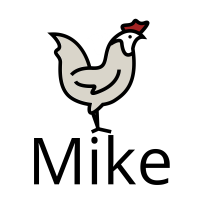For me, it may be that the toilet paper roll needs to have the open end away from the wall. I don’t want to reach under the roll to take a piece! That’s ludicrous!
That or my recent addiction to correcting people when they use “less” when they should use “fewer”


I wish we had a dialect or subset of English that was intended to be more like computer code, and would be used for precisely specifying things. I have no idea how we’d do such a thing, and it’d never be adopted (and probably it’s been tried!). But trying to write English in a way that can’t be misinterpreted can be a real chore.
This does exist in professional disciplines as jargon. I work in Orthopaedics and we do not say the “over here, inside part of my knee in the front. “. We say, “inferior, medial pole of the patella”
That’s true and a great example of what my industry needs.
To make an analogy, in the software industry we call 7 different knee-like things “knees”. Not to be confused with the product, Knee, which is also knee-like, but due to its name either pollutes the search results for other knees OR can literally not be searched, and is only a very specific case of knee anyway!
Relevant XKCD
We do have that; it’s called “legalese.”
On a tenuously-related note, I really wish politicians would use Git (or at least some form of real version control) instead of relying on redlined drafts in Word.
I completely agree that Git has some great use cases outside software, and I like the one you suggested. If git is a bidet, random untracked edits (by anyone with access!) to documents are the TP we should have left behind as a society by now.
git is the bidet of information.
Natural human languages always have ambiguity. There are plenty of conlangs (constructed languages) specifically designed to avoid ambiguity though if you wanted to use one of those.
If such a version of English were ever made, it would immediately gain ambiguity as soon as people began speaking it fluently (and same for the conlang if a community of speakers began using it fluently as well).
Yeah that’s fair, and it was clear to me from the jump that it’s an unrealistic desire.
I think “legalese” might be close to what you’re describing. It can still be ambiguous, but it seems to be our best attempt at avoiding that. Some forms of technical writing may also meet your definition.
I do plenty of technical writing just documenting software I write, and that’s definitely what has me pining for something a little more prescriptive. Even just reordering some words can suggest different meanings and it’s very difficult to step outside my own understanding of what I’m writing about to see it with “fresh eyes”, how someone else may interpret it.
I have to acknowledge that legalese does meet the criteria! Someone else mentioned that too. It feels very far off from what I had in mind though. Maybe just because I don’t speak it fluently!